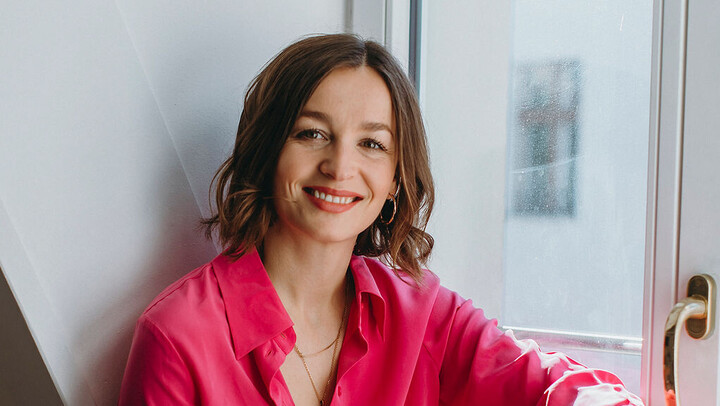Made in Mannheim
As a university with a strong startup scene, the University of Mannheim regularly ranks among the top universities in the Startup Monitor, the ranking of the German startup scene published by the auditing firm of PwC. What many people don't know: Former Mannheim students were always involved in the founding of companies such as Payback, Amorelie and Foodspring. Another Mannheim founder is Victoria Engelhardt. She studied at Barockschloss from 2009 to 2012 and earned her Bachelor of Science in Business here. In 2017, she founded her first startup: keleya, an app for pregnant people. Starting with the pregnancy app, keleya now offers a wide range of expert courses for pregnancy and the postpartum period. The platform ammely supports parents in finding midwives. In her interview with FORUM, Victoria Engelhardt talks about her time in Mannheim, her path as a founder in the FemTech industry and reveals one or two good tips for young founders.

FORUM: What did you study at Mannheim and what memories do you have from that time?
Engelhardt: I studied in the B.Sc. program in Business Administration from 2009 to 2012. I have fond memories of my semester abroad in San Diego, the regular cool lectures from people in industry, and the Schneckenhof. Start-ups weren’t really a thing back then. It was still a different time.
FORUM: Back when you were a student, did you already have a plan to start a business?
Engelhardt: That wasn’t something I thought about while I was studying. It wasn’t a topic in the curriculum either, or something we talked about. Back then, we students thought either consulting or private equity were the Holy Grail. I think that’s changed a lot in the intervening period.
FORUM: How did you come up with the idea for the femtech apps keleya and ammely? And how have your start-ups been doing since then?
Engelhardt: I was actually planning to do a doctorate. But then I realized I wanted to make a difference and change the world, rather than working on a doctorate in my own secluded little bubble. When a good friend of mine became pregnant, I saw what it meant to suddenly be confronted with a whole heap of questions and problems. Like struggling to find a midwife or a spot in a prenatal class. There’s also a lot of bad or inaccurate information circulating online, which is doubly dangerous when it comes to such a sensitive topic that people might not want to talk about with their acquaintances in the early stages of the pregnancy. Also around that time, Sabine Kroh founded “call a midwife”, which was a new and totally disruptive idea. And since I’ve always been interested in women’s issues and supporting women, I thought it was great. All these ideas prompted me to really delve into the topics of pregnancy, women’s health, and midwife provision. And the result was keleya and, later on, ammely.
FORUM: What pro tip would you give to young company founders?
Engelhardt: You need to be on your guard during pitches and when you contact investors. It’s OK to focus on your strengths, rather than being overly honest about your weaknesses. So founders should practice their pitches and, above all, how to respond to difficult questions in advance, so that they can deal with them confidently and work out good answers. And if you’re a team, it’s helpful to coordinate your complementary strengths and make sure you have experience covering a range of different areas. I think the most important thing for being able to work together well over the long term is that you share the same values. You can have constructive discussions about business matters if opinions diverge, but you need to be on the same page when it comes to the fundamental values your business is built on.
Text: Jule Leger/
